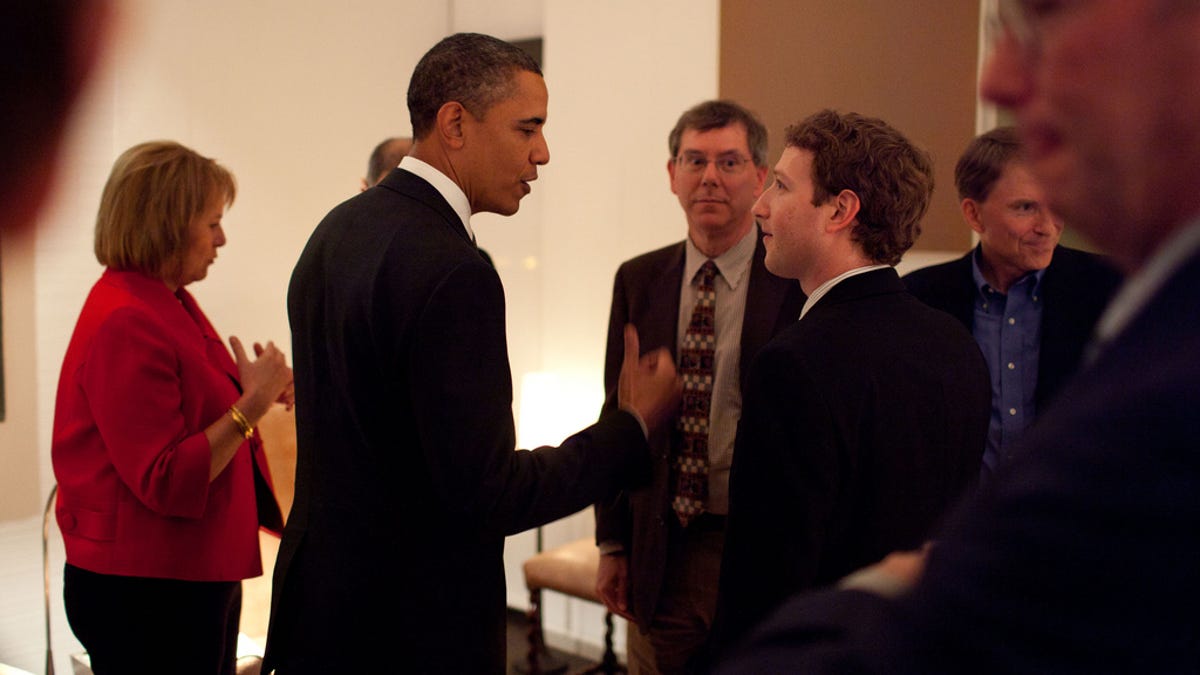Facebook wants you -- to vote
Facebook is expected to send U.S. members a reminder of their civic duty this Tuesday.

When you log in to Facebook on Election Day you will likely be greeted by a note reminding you of your civic duty.
The social network is expected to post messages for its voting-age members in the U.S., as it did in 2010 when it sent out a "Today is Election Day" note to the 61 million users who were of voting age. The note included a link to polling places and an "I Voted" button that would let your friends know you went to the polls.
When you decide to broadcast that you voted, you could be inadvertently convincing your friends to go out and vote as well. In a study led by the University of California, San Diego, researchers showed that these 2010 users were persuaded less by civic duty and more by peer pressure.
Users who saw photos of friends who voted attached to the message were more likely to vote. Users who saw the same message with no friends' photos attached were just as likely to vote as users who didn't receive a message at all.
So how much would a nudge from Facebook affect this year's election?
Lee Rainie, the director of the Pew Research Center's Internet & American Life Project, said it's difficult to give a hard number on how many more people would vote because of a note on their Facebook pages, since it's difficult to pinpoint what moves a voter.
"The messaging is saturated with automated calls, brochures, ads on TV.... It will be hard to isolate a single metric," he said.
But what seems clear is that Facebook has changed at least some Americans' approach to politics.
Political campaigns have increasingly touted Facebook as a valuable tool. After the 2008 presidential election, some pundits pointed to Barack Obama's command of the network as a factor in his success. But this time around he has more competition in the space.
"It was still a novelty and a sidelight," Rainie said of Facebook. "That's why Obama owned the space as much as he did. Now everybody is sure of it."
In addition to political campaigns turning to Facebook as a tool to connect with voters, the social network has been increasing its own efforts to encourage voting, partnering with CNN to launch an "I'm Voting" app this year, and adding voter registration as a preset "life event" on its Timeline. In July, Facebook partnered with Washington state to let users register to vote through a Facebook app.
It's an opportunity for campaigns and public agencies to increase voter turnout -- 66 percent of U.S. Internet users who are of voting age use Facebook.
Rainie said Pew's studies have shown that Facebook affects how people vote. He published a study Friday about how social media -- mainly Facebook -- affects political views. The study found that 25 percent of users surveyed say they became more active in regard to a political issue after discussing it or reading posts about it on social media. What's more, 16 percent actually changed their minds about an issue because of what they encountered on social media.
Overall, Rainie said, people often make political decisions based on two things: how the media portrays an issue, and from watching how others who are really engaged are talking about an issue. And since 69 percent of Internet users are on Facebook, its not a surprise that those discussions are happening there now.
"Social media just puts this all on a much grander stage," Rainie said. "People can watch more, grander conversations unfold."
It'll be interesting to see how things play out this time around, particularly because Facebook's demographics have changed dramatically since the last presidential election. In 2008, 72 percent of Facebook's adult users were under the age of 35. Now that percentage has dropped to 35 percent.
Rainie found that Facebook is a sounding board for those who feel they aren't in power. That's because the media covers those in power the most. In 2008, Facebook was mainly used by liberals and Democrats to talk about political issues. When the roles of power reversed, conservatives and Republicans took to posting.
"When you're out of power, there's more reason to complain about the team that is in power," Rainie said.

